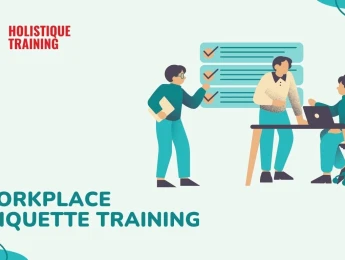Within any organisation, it’s important to create company values, rules, and policies to develop a workplace culture that all employees follow. This makes people feel safe and secure in the workplace, develops stronger relationships between employees, and contributes to a happier, more motivated workforce with higher productivity.
Acceptable workplace behaviours are determined from the top down, and it’s good practice to establish these from the beginning and ensure all employees fully understand the rules and where they can get more information and support if they need clarification.
Workplace fairness is one of the main motivators for productivity and quality of work. All employees need to feel that they are treated fairly and equally, which gives your organisation a good reputation and generates a more successful workforce. To ensure everyone understands this approach, it’s essential to train every employee in the same way regarding policies and to create a fair structure to discipline people who aren’t meeting acceptable behaviours.
Upon completion of this course, participants will be able to:
- Understand your own motivators in the workplace and turn them into workplace values.
- Develop methods of performance management to maintain fairness in all processes.
- Encourage motivation and a good work ethic in others.
- Reward successes to build morale.
- Support every employee in understanding your company values.
- Investigate negative responses to workplace values and make changes where required.
- Conduct pulse surveys to understand people’s perceptions of how the company adheres to its values.
- Develop a stronger understanding of your organisational structure.
This course is designed for anyone responsible for organisational communication and values rollout or motivates a team to perform based on set policies and procedures. It would be most beneficial for:
- Business Owners
- Directors
- Operations Managers
- Team Leaders
- Supervisors
- Communications personnel
- HR Personnel
This course uses various adult learning techniques to aid full understanding and comprehension. Participants will watch presentations regarding value implementation and learn the benefits of having one collective stance. They will conduct group exercises to determine which policies are needed within individual organisations.
Role-playing exercises will be conducted during the expert rollout of company-wide values, and participants will learn how to handle the disciplining of non-adherence.
Day 5 of each course is reserved for a Q&A session, which may occur off-site. For 10-day courses, this also applies to day 10
Section 1: Understanding Your Organisational Structure
- Goal setting and why it’s essential.
- Developing the right kind of supervisors.
- Applying professional leadership models.
- Future possible trends and how to combat them.
- Best practice organisational standards depending on the industry.
- Driving value and ethics ownership within each employee.
- Encouraging a ‘speak out’ culture to define business norms.
Section 2: Your Ethics & Performance Output
- The Kaizen method to drive company improvements.
- Measuring productivity before and after your values rollout.
- Work ethics vs. team motivation.
- Global standards and varying measures of performance.
- Creating better ethics in the workplace.
- Implementing policies to boost productivity.
- How to create a performance checklist.
Section 3: Your Organisational Chart
- Putting good role models at the top.
- Understanding your own behaviours and putting them to good use.
- Review your current org chart - is it practical in theory and in practice.
- Workplace standards encouragement.
- Create a culture of development and empowerment.
- Selecting the right leaders.
- Forming, storming, norming, and performing.
Section 4: Ethics, Behaviours & Managing Non-Adherence
- Motivational techniques to support higher performance.
- The hierarchy of needs and motivational factors.
- The theory of X/Y.
- ERG and expectancy theory.
- Performance management against values and ethical standards.
- How to monitor and show non-adherence.
- Models to influence organisation development.
Section 5: Relying on Group Behavioural Dynamics
- Understanding human behavioural links as an individual and in a group.
- How to manage change down your organisational structure.
- Identifying risk elements and correcting mistakes.
- Your higher output based on business culture.
- Setting realistic goals for the future.
- How to develop active listening and effective communication styles to influence and motivate.
- Cross-functional team building.
- Relying on teams to influence each other and grow together.
Upon successful completion of this training course, delegates will be awarded a Holistique Training Certificate of Completion. For those who attend and complete the online training course, a Holistique Training e-Certificate will be provided.
Holistique Training Certificates are accredited by the British Assessment Council (BAC) and The CPD Certification Service (CPD), and are certified under ISO 9001, ISO 21001, and ISO 29993 standards.
CPD credits for this course are granted by our Certificates and will be reflected on the Holistique Training Certificate of Completion. In accordance with the standards of The CPD Certification Service, one CPD credit is awarded per hour of course attendance. A maximum of 50 CPD credits can be claimed for any single course we currently offer.
- Course Code PH1-113
- Course Format Classroom, Online,
- Duration 5 days













